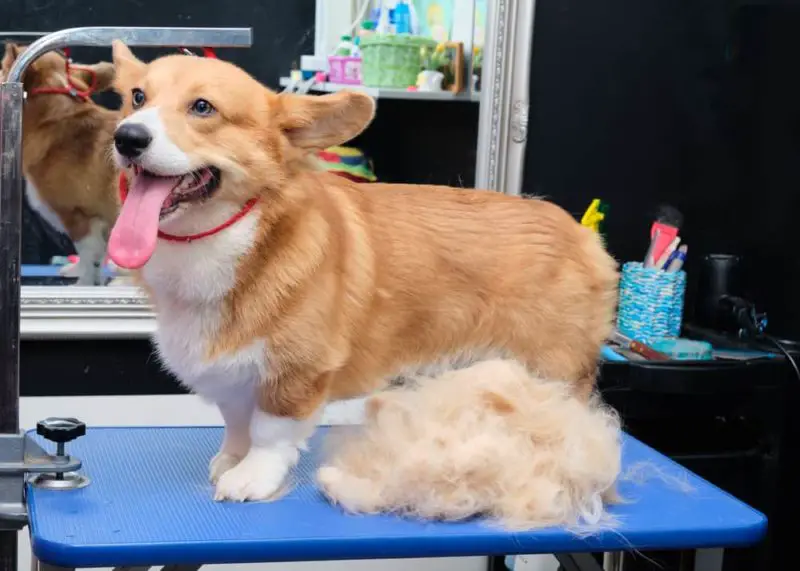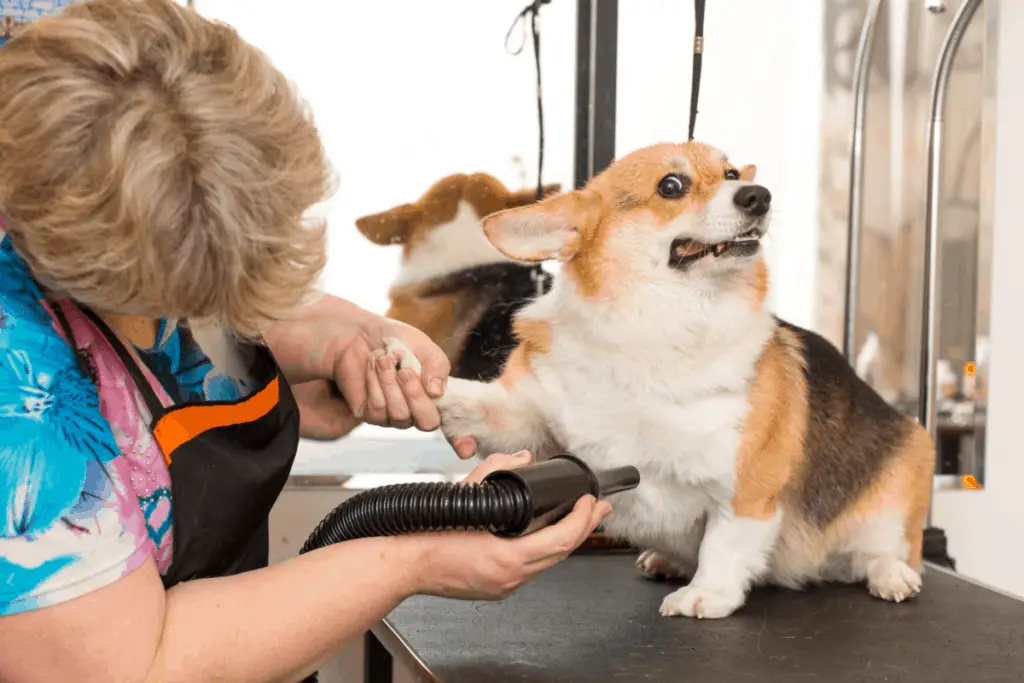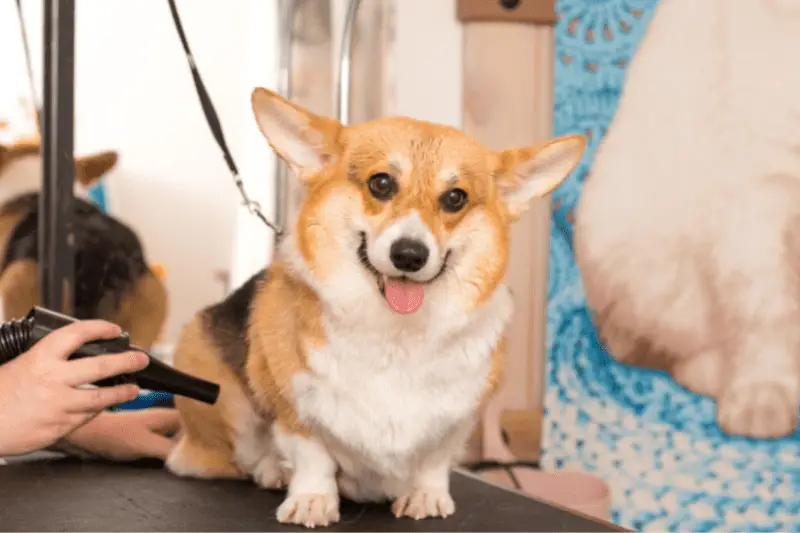Are you wondering whether it’s a good idea to shave a corgi? With their long, luscious coats and wild curls, it can be hard to resist the temptation. However, before you grab the clippers or decide on taking your pup for a groomer appointment, there are some important things that you should consider!
In this article, we’ll explore the topic of shaving a corgi. Is it okay to shave a corgi, and what are the potential benefits and drawbacks of doing so? We’ll answer these questions and more, starting with an explanation of corgi’s double coat.

Can You Shave a Corgi?
Shaving a Corgi is not recommendable. Corgis are blessed with a unique double coat of fur, made up of a soft and fluffy undercoat as well as an outer layer that is coarser in texture and safeguards them from the elements. Not only does this two-layer combination keep corgis warm during cold weather conditions but cool when the climate calls for it too.
If you’re considering shaving a corgi, it’s important to understand that they have a double coat which makes the process more complex than when dealing with other breeds.
Here are some reasons why you shouldn’t shave a corgi:
- The coat may not grow back evenly, resulting in a patchy appearance.
- Shaving can disrupt the natural insulation of the coat, making the corgi more susceptible to heat stroke or hypothermia.
- Corgis with certain health conditions or skin sensitivities may be more prone to skin irritation or other issues after being shaved.
Can You Shave a Corgi in the Summer?
Although it may be appealing to give a Corgi a summer shave to keep them cool, several risks should not be overlooked.
- Shaving your Corgi can disrupt its natural ability to regulate its body temperature and may make them more vulnerable to heat stroke.
- Additionally, shaving can increase the risk of sunburn and skin damage, particularly for dogs with light-colored or thin fur.
Instead of shaving, it’s recommended to use other grooming methods to keep a corgi cool in the summer. Regular brushing and bathing can help remove excess fur and keep the coat clean and healthy. Keeping a corgi in a cool, shaded area and providing plenty of fresh water can also help prevent overheating.
Regular brushing can help remove loose fur and prevent matting, which can trap heat and make your corgi uncomfortable. Trimming the fur around the paw pads and belly can also help keep your corgi cool.
Related post: Corgi Grooming: Do corgis need to be groomed?

How Long Does It Take for Corgi Hair to Grow Back After Shaving?
Don’t fret if your corgi’s fur is shaved by the vet due to a medical examination or procedure, their coat will inevitably return! While it might be disconcerting at first, owners of these loving pups can rest assured that the hair on their beloved pup’s back and legs will grow again in no time.
After a corgi is shaved, it can take several months for its coat to fully regrow. The exact timeline can vary depending on the length and thickness of the coat, as well as the individual dog’s growth cycle. In general, you can expect to see some regrowth within a few weeks, but it may take several months for the coat to return to its full length.
However, some factors can affect the regrowth process. For example, if the shave was done improperly or too close to the skin, it can damage the hair follicles and make it harder for the hair to regrow. Additionally, if the corgi has an underlying health condition that affects its coat, it may take longer for its hair to grow back.
How to help your Corgi’s hair grow back quickly
If your Corgi has been shaved and you are concerned about its hair regrowth, there are some steps you can take to promote healthy coat growth. First and foremost, make sure your corgi is getting a balanced diet that provides all the necessary nutrients for hair growth. Regular brushing can also help stimulate the hair follicles and promote healthy regrowth.
During the regrowth process, it’s important to take extra care with your corgi’s coat. The new hair may be more sensitive and prone to tangling, so make sure to brush and comb it regularly to prevent matting. You may also want to consider using a conditioning spray or other grooming products to help keep the coat soft and healthy.
Related post: The best brushes for corgis

Conclusion
In conclusion, grooming is an essential aspect of caring for your corgi, and it’s essential for the well-being of your pup. While shaving a corgi may seem like a simple solution to manage the shedding, it’s important to weigh the potential risks and benefits and consider alternative grooming methods.
If your corgi needs to be shaved, be sure to take proper care of its skin during the regrowth process and consult with a veterinarian or professional groomer for guidance. Remember, a healthy coat is a vital part of your corgi’s overall health and well-being.


